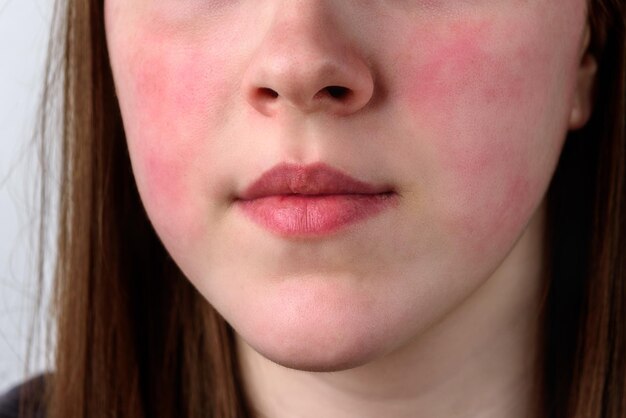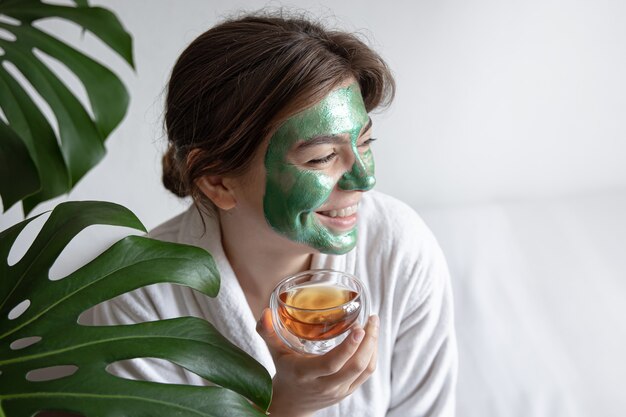Ask Ayurvedic doctor a question and get a consultation online on the problem of your concern in a free or paid mode. More than 2,000 experienced doctors work and wait for your questions on our site and help users to solve their health problems every day.
SLE Treatment in Ayurveda – A Holistic Approach to Lupus Management

Introduction to SLE Treatment in Ayurveda
SLE Treatment in Ayurveda offers a natural, holistic approach to managing Systemic Lupus Erythematosus (SLE), an autoimmune disorder characterized by inflammation and multi-system involvement. By addressing the root causes of imbalances in the body, Ayurveda aims to reduce inflammation, boost immunity, and restore equilibrium through personalized dietary guidelines, herbal remedies, detoxification therapies, and lifestyle modifications. This traditional system provides a complementary approach to managing Lupus symptoms and improving overall quality of life.
Don't wait or self medicate. Start chat with Doctor NOW
Historical Roots & Ayurvedic Significance
Ayurvedic medicine has long recognized the importance of balancing the body's doshas—Vata, Pitta, and Kapha—to maintain optimal health. In the context of SLE, an imbalance, particularly involving Pitta (inflammation) and Vata (irregular immune responses), can contribute to the chronic and systemic nature of the disease. Ancient Ayurvedic texts describe conditions with similarities to autoimmune disorders and recommend a multi-faceted treatment approach that includes detoxification (Panchakarma), herbal remedies, and rejuvenation therapies to restore the body's natural harmony.
Key Components & Therapeutic Benefits
Herbal Composition & Remedies
Ayurvedic treatments for SLE emphasize the use of herbs known for their anti-inflammatory, immunomodulatory, and detoxifying properties. Commonly used herbs include:
- Ashwagandha (Withania somnifera): Acts as an adaptogen, reducing stress and modulating immune responses.
- Turmeric (Curcuma longa): Offers potent anti-inflammatory and antioxidant effects.
- Guduchi (Tinospora cordifolia): Renowned for its immunomodulatory and detoxifying properties.
- Brahmi (Bacopa monnieri): Supports mental clarity and helps balance Vata.
- Amalaki (Emblica officinalis): Rich in antioxidants, it aids in reducing oxidative stress and inflammation.
These herbs work synergistically to soothe inflammation, detoxify the system, and support overall immune balance.
Detoxification & Dosha Balancing
SLE treatment in Ayurveda involves cleansing the body of toxins (ama) that may exacerbate autoimmune reactions. Panchakarma therapies, such as Virechana (therapeutic purgation) and Basti (medicated enema), are employed to expel accumulated toxins and balance the doshas. By reducing Pitta and Vata imbalances, these therapies help lower systemic inflammation and create a more stable internal environment for healing.
Rejuvenation & Immune Support
Rejuvenation, or Rasayana, is a core component of Ayurvedic treatment for chronic conditions like SLE. Rasayana therapies include the use of specific herbal formulations, dietary adjustments, and lifestyle practices that promote cellular regeneration, enhance immunity, and restore vitality. This rejuvenative process is essential for long-term management, aiming to improve the body's resilience against autoimmune flare-ups.
Enhancing Digestive Health & Nutritional Balance
A strong digestive system is central to Ayurveda's approach to disease management. For SLE, enhancing Agni (digestive fire) is critical, as it ensures proper metabolism and assimilation of nutrients. A balanced diet rich in anti-inflammatory foods, alongside digestive herbal formulations, supports overall health and reduces the burden on the immune system.
How SLE Treatment in Ayurveda Works: The Science Behind the Approach
The Ayurvedic approach to SLE treatment integrates detoxification, immunomodulation, and rejuvenation. The bioactive compounds in herbs like turmeric and guduchi help modulate inflammatory pathways and oxidative stress, while detoxification procedures remove toxins that contribute to systemic inflammation. Furthermore, Rasayana therapies support cellular repair and regeneration, enhancing the body’s natural ability to manage autoimmune responses. This multi-pronged strategy not only alleviates symptoms but also addresses the underlying imbalances that drive the disease.
Choosing the Right Ayurvedic Remedies & Guidance
When considering SLE treatment in Ayurveda, it is crucial to:
- Consult with Certified Ayurvedic Practitioners: Personalized treatment plans are essential to tailor therapies to your specific constitution and disease profile.
- Ensure High-Quality Ingredients: Use authentic, organic herbs and standardized formulations to maximize therapeutic benefits.
- Adopt a Comprehensive Approach: Integrate detoxification, dietary adjustments, herbal remedies, and lifestyle modifications for optimal results.
- Monitor Progress: Regular follow-ups with your practitioner help adjust treatments based on your response and overall health.
Recommended Dosage & How to Use Ayurvedic Remedies
The dosage and administration of Ayurvedic remedies for SLE vary based on individual needs. Generally:
- Herbal Formulations: These may be taken in the form of decoctions, powders, or tablets, as prescribed by your Ayurvedic physician.
- Panchakarma Procedures: Detoxification therapies should always be performed under the supervision of a certified therapist.
- Diet & Lifestyle: Follow specific dietary guidelines and daily routines recommended by your practitioner to support the therapeutic regimen.
- Adaptation: Begin with lower doses of potent herbs and gradually adjust as your body adapts, always under professional guidance.
Potential Side Effects & Precautions
While Ayurvedic treatments for SLE are generally safe when administered correctly, certain precautions are necessary:
- Individual Sensitivities: Some individuals may experience mild digestive discomfort or allergic reactions to specific herbs. Discontinue use if adverse effects occur.
- Underlying Health Conditions: Always inform your healthcare provider about your Ayurvedic treatment plan, especially if you are on conventional medications.
- Professional Supervision: Detoxification and Panchakarma procedures must be conducted by experienced practitioners to avoid complications.
- Consistency: Long-term management requires a consistent regimen and regular monitoring to ensure the treatment’s effectiveness and safety.
Frequently Asked Questions
What is SLE treatment in Ayurveda?
SLE treatment in Ayurveda is a holistic approach to managing Systemic Lupus Erythematosus using natural herbal remedies, detoxification therapies, dietary modifications, and lifestyle adjustments to balance the doshas and reduce inflammation.
How do Ayurvedic remedies help in managing Lupus?
Ayurvedic remedies help manage Lupus by reducing systemic inflammation, modulating the immune response, detoxifying the body, and promoting tissue regeneration through a combination of herbs, detoxification procedures, and rejuvenative therapies.
What are the key herbs used in Ayurvedic treatment for SLE?
Key herbs include Ashwagandha, Turmeric, Guduchi, Brahmi, and Amalaki. These herbs possess anti-inflammatory, immunomodulatory, and antioxidant properties that are vital in managing autoimmune conditions like Lupus.
How important is detoxification in Ayurvedic SLE treatment?
Detoxification is essential as it helps remove accumulated toxins (ama) that can exacerbate inflammation and immune dysregulation. Panchakarma therapies like Virechana and Basti play a crucial role in achieving this detoxification.
Can Ayurveda completely cure SLE?
While Ayurveda may not completely cure SLE, it can significantly reduce symptoms, improve quality of life, and enhance the body’s natural healing mechanisms. A comprehensive treatment plan can help manage flare-ups and maintain long-term wellness.
How long does it take to see improvements with Ayurvedic treatment for SLE?
Improvements vary by individual and the severity of the condition. Some may notice gradual symptom relief within weeks, while sustained benefits often require a longer, consistent treatment regimen under professional supervision.
Where can I access authentic Ayurvedic treatment for SLE?
Authentic Ayurvedic treatment should be sought from certified Ayurvedic practitioners or reputable Ayurvedic centers that specialize in autoimmune disorders and offer personalized treatment plans based on your unique health profile.
Conclusion & Expert Insights
SLE treatment in Ayurveda offers a holistic, natural approach to managing Lupus by addressing the root causes of autoimmune imbalances. Through detoxification, immune support, and rejuvenative therapies, Ayurveda aims to reduce inflammation, restore balance, and improve overall quality of life. For those seeking an integrative approach to Lupus management, consulting with a certified Ayurvedic practitioner is essential to tailor a comprehensive treatment plan that meets individual needs.
References & Further Reading
- Sharma, P.V. (1995). Ayurvedic Healing: A Comprehensive Guide.
- Lad, V. (2002). Ayurveda: The Science of Self-Healing.
- National Institute of Ayurveda:
- Journal of Ayurveda and Integrative Medicine for research articles on autoimmune disorders and Ayurvedic therapies.



